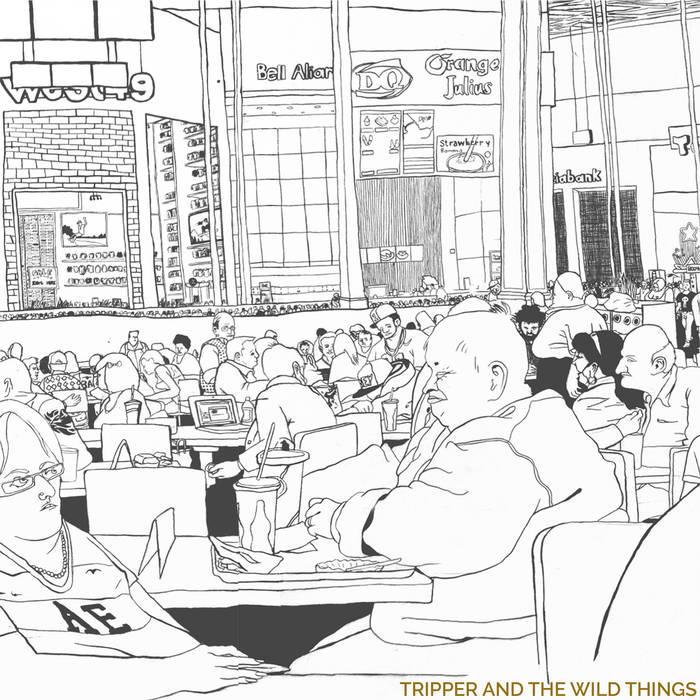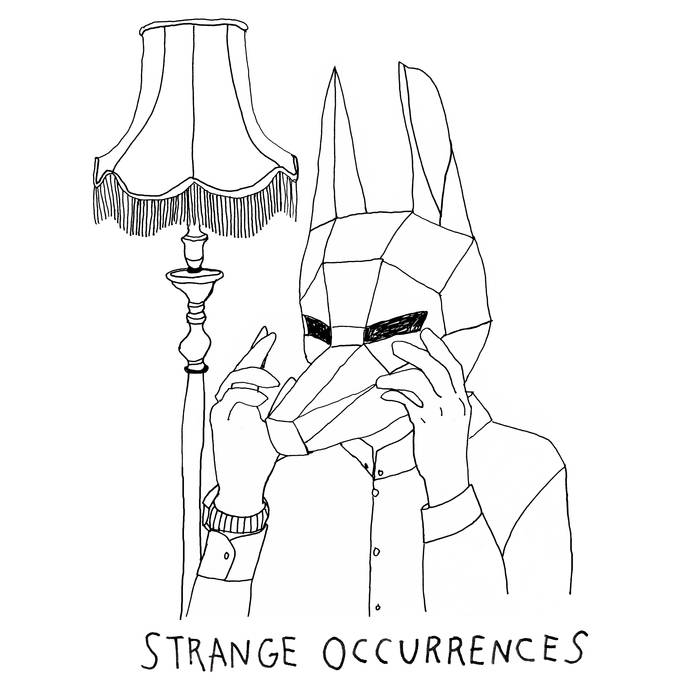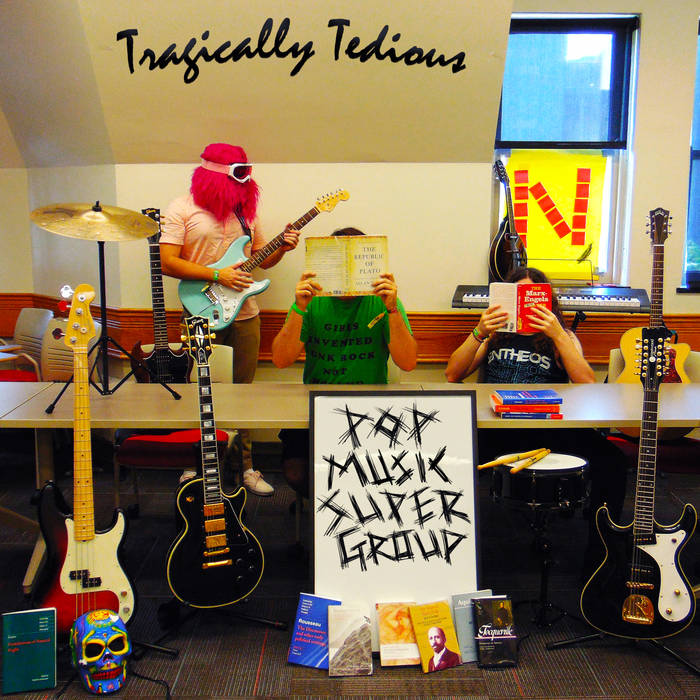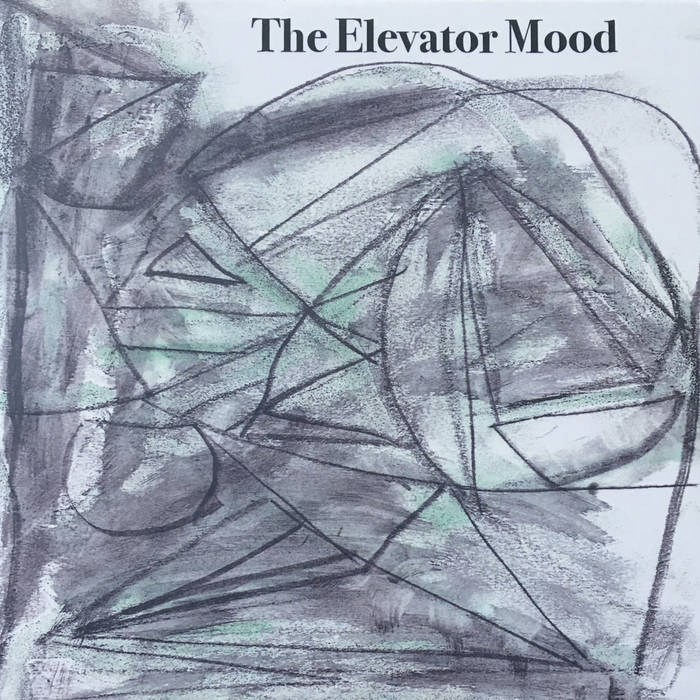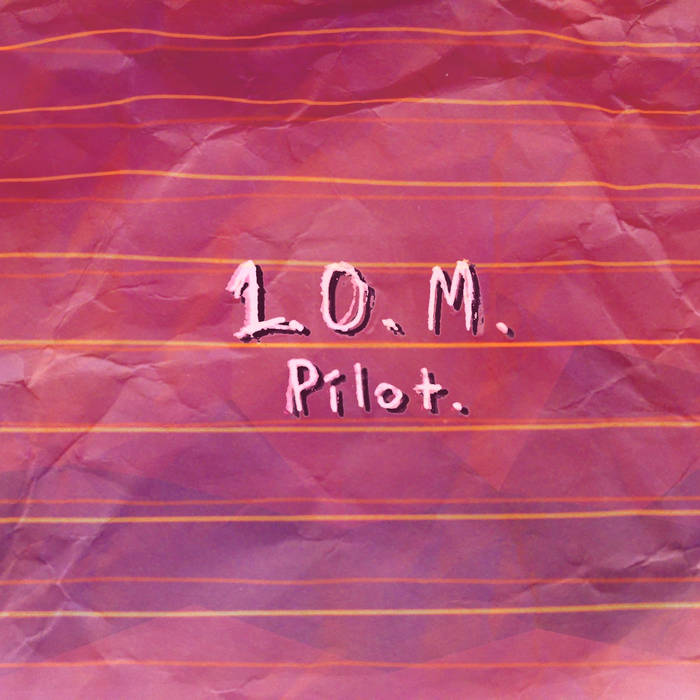|
Spätzer is a new project by Seattle’s emerging multidisciplinary artist Aiken Bömers-Muller. Bömers-Muller is releasing his brand new album entitled Dérive.
The music came to be from a complex creative process, Bömers-Muller didn’t want to simply rely on himself nor let his musical habits or any creative road blocks inhibit him. He was influenced by the theories of Debord and Situationism when he picked up the dice and let his friends give him the numbers. The process developed through a Python script. Bömers-Muller then had something he could play with and curate. Relying on this method, he could simply allow something else to make the decisions. Through the gamble of a dice, Dérive was realized. It is a culmination to a brand new method of music making. Dérive opens with “Exploration A,” where ambient electronic sounds create a soaring soundscape. Robotic beeps and flare ups cycle in the tune. The bass lines are heavy and rhythmic. The electronic layers are airy and ethereal. A moving sound unfolds. Tendrils of electronic beats whispers in and out of this track. Eventually, the cadence branches off into a moody electronic sound towards the three-and-a-half-minute mark. “Stromfeld” has an ethereal and a sweeping cadence. An arresting and soaring sound transpires that has an illuminating pull. Ambient synths also sweep in loosened over an electronic vibe. Next, a metal-tinged electronic layer adds in a touch of industrial-ness. Here are the first appearances of vocals on the album. A bit of vocals dosed with reverb sing in the backdrop accompanied by the acoustics of the piano that provides for a haunting riff. Intermittently, shooting flares rips apart the track. “A Night In A Shop” is an eleven-minute long song and is a little on the lengthy side. The notes seem to be elongated becoming a wholly ambient soundscape. There is definitely a moody pull to the airy layers. The electronic beats pick up toward the six-and-a-half-minute mark becoming more upbeat and gathering in a sizzling air. The hypnotic layers will definitely leave listeners entranced from the ghostly sounds that arises. From what I know, Bömers-Muller’s creative process is new. He structures his music to the game of chance – something I believe has never been done before. Staunch believers in traditional songwriting have long upheld that form and structure are the favored backbone to a song. With Dérive, he tosses all this onto the back burner as well as innovating a whole new thought-provoking creative process. Dérive isn’t just innovative, it is unique in a way. Who could believe notes could be distilled into algorithms? Be sure you have a listen today!
0 Comments
Ontario outfit Tripper and the Wild Things have created something familiar with their debut self-titled album Tripper and the Wild Things. It oozes of alternative rock favorites like Nirvana and the Pixies, and if you turn it up loud enough, you may feel like you’ve been transported to 1991. But when the album comes to a close, it’s still 2019, and Nevermind and Surfer Rosa are still available to listen to on Spotify. While the album is a front-to-back fun listen, Tripper and the Wild Things fails to rise above its influences.
The song “Wrecking Man” exhibits all the band’s strengths. The guitar, reminiscent of Smashing Pumpkins, is catchy and drives the song forward. We get the first taste of lead man Joshua James’ scratchy, Cobain-like vocals on this track as well. It’s a song about the self-reflection that comes after a relationship ends. As the song intensifies, so does James’ delivery as he sings, “Want to feel your body against mine / And I said that I’m sorry for the wasted time / I’m a wrecking man.” It’s a punchy and dynamic track that proves the band can rock. The opener “Caramel” is arguably the album’s highlight, despite differing slightly from the rest of the songs. This Britpop tinged tune is closer to Oasis than Nirvana and features the best overall songwriting. The vocal melody is catchy all the way through and features a stuck-in-your-head chorus, culminating with the dangling line, “I’m caramel.” Despite these high marks, I couldn’t help but hear the songs and bands that influenced this Tripper and the Wild Things album, like Nirvana’s “Heart-Shaped Box” or “Growing Pains.” At times, it took me out of the experience. Hopefully, Tripper and the Wild Things use this grunge and alternative rock sound and takes it somewhere new. This album proves that they are talented enough to do it.
Rogério Baraquet is a musician but he is also a yoga teacher. It only makes sense that he named his latest album Yoga Waves. With that kind of name you might be expecting ethereal and serene sounds which are conducive to yoga as well as meditation. That is the case, although there is a lot of diversity amongst these twelve tracks. Suffice it to say there are a lot of tracks where dancing seems like the way to go.
The album starts with the atmospheric “Omkara” which is pure ambience. There is an airy cloud that is greeted with two separate vocals. The male voice does the classic sound you hear in yoga and meditation while the female voice has a little more variation. “Omkara” felt like more of an intro at under two minutes. The album begins to pick up energy from percussive elements and the remaining tracks go from about four minutes to six minutes. “Mahabhadra” is the next track and although this track is tranquil and felt like a meditative space the beat gives it some traction. That being said, it is a slow burn that relies on the central drone as a center. A song like “Jaya” really digs into rhythm and melody. There are multiple vocal lines along with a lot of elements that transition. The groove is there but still very mellow and dreamlike. I still felt like I was in a dream in “Gaja” which has some eastern instrumentation that seems to come from a wooden flute. There are faint vocals in the background as well as other elements feel ephemeral. “Narayani” is a song where the vocal when is was sung felt like a lead focal point. One of the highlights was “Prachodayat” which actually felt a little darker and even menacing at points. As the album progresses I thought there were a couple songs that stuck out to me. “Brahmarupa,” “Dhana” and “Mangalam” were standouts. This is a long album but it also felt seamless. I think these would be just about perfect for yoga. That being said you don’t need to have any sort of practice to enjoy what these songs offer.
Electric Jackal is a project led by James Doherty, a multi-instrumentalist and producer working out of South London. Originally a film-maker, Doherty dabbed in composing and producing music which is instrumental in him branching off into Electric Jackal territory. Other than that, Doherty’s identity is shrouded in mystery. According to the artist, he wears a mask for the benefit of others. Perhaps the effort is saying he is putting his music first but whatever the statement, the jackal mask, which is shiny coal black and mysterious is definitely cool. His music is the definition of cool with chill electronica locked in with an irresistible indie rock vibe.
He explains his creative process as putting the music first and then comes the lyrics. He says he has an idea of what a song feels like it’s about and works from there. With his latest EP entitled Strange Occurrences, he has really arrived with a signature sound inspired by the likes of Arctic Monkeys and Talking Heads. A melding of melodic pop hooks and electronica, Strange Occurrences is a memorable EP with a whole lot of imaginative scope. Right from the start, Strange Occurrences hooks with layered bouncy beats on “Islands,” where the synths provide an ambient appeal. Airy guitars pivot on this track. Upbeat and eccentric indie rock feels are buoyed by chill electronic beats. The vocals are impassioned with the lyrics sung with gusto. On “Clockwork,” a demanding drumming beat set up the rhythms sections towards the start of this song. Reverberating guitar riffs fills the jaunty tune. The beat is insanely fast. The synths are powerful and energized accompanied with upbeat and catchy rhythms. Following is “Flesh & Bones,” where pulsating rhythms on the bass line produces a hypnotic sound. Wild and melodic guitars follow up on the melee. The bass lines are moody and provide a steady foundation for the guitars. The guitars are soaring, blending together a great atmospheric cadence. On the closer “Be Still,” ringing and bleeps automatically register at the start of this track. The song is tinged with melancholy. A moody and haunting sound pervades layered with distilled reveries wrapped up in a grave and somber sound. The synths are ambient as well. Doherty definitely delivers on this release. With vocals that are packed with attitude and flair, the lyrics are spewed out passionately. There is a lot of theatrics to the singing demonstrating his showmanship with embellishments. He is greatly entertaining on this record. Tying in electronic soundscapes with an indie rock vibe, Doherty’s sound goes on to incorporate his influences as well as absorbing a cadence that is all this own. Layered with bouncy beats and airy guitars, Strange Occurrences is a solid endeavor that is also repeat worthy. Be sure you have a listen today!
Eli Thayer (guitar/vocals), Kat Liu (guitar), Joseph Wehmeyer (drums) and John Wehmeyer (bass) are Marine Anthropology. The band released Sunburst Chaser which is a five-song EP that displays what the band has been up to for about the last year.
The band plays pretty straightforward indie rock. There really weren’t any surprises but I thought the songs were well delivered and well written. The album starts with the title song “Sunburst Chaser” which starts with clean, melodic guitars, a steady bass and a driving beat. It’s a catchy song that seems to have a coming of age theme that reflects with people in their early twenties. He sings, “Someday I'll be older see / Then my hands won't fail me / I'll forget to watch the crowd / Then you'll slow down.” As the song progresses there is a good amount of energy and I felt like it was a good song to introduce the band's sound. “Wanderlust” is a bit of a slow burn. The first half of the song is fairly jazzy in some ways. It sounds slick with sparse percussion, bass and guitar. It’s around the last minute of the song where the song really picks up with a blazing guitar solo. “Lights” is 101 garage rock in the spirit of a band like The Strokes or The Arctic Monkeys. “Whatever I Say” is another slow burn. It’s a ballad of sorts with long notes that sink into your soul. They close with a ten-minute-plus song entitled “53 Weeks” which is also in the spirit of a band like The Arctic Monkeys or The Strokes but Interpol also came to mind. It’s definitely the band's most ambitious song and shows some of their versatility. The vocal harmonies towards the end might be their best moment. As an engineer myself the recording quality feels on the bullseye of a standard home recording. Suffice it to say the next logical move for the band would be to either record in a studio or work with an engineer to bring the recording quality up to par with some of the aforementioned artists. Overall, I thought the young band has some potential as well as talent. I’m looking forward to hearing more from the band.
Pop Music Supergroup is a bunch of young college age guys attending University of Chicago and making music. It’s been fifteen years or so but having gone to college and playing music with guys who were also studying I can say it’s a big highlight of my life. It’s also a blast to rock out and that was the feeling I got when listening to most of the songs on Tragically Tedious. Even though according to their Bandcamp page the songs seem to be about unrequited love they appear to brush it off with ease. In fact that might be why they called the album Tragically Tedious.
The youthful, coming of age vibe really comes through on these songs. What I really liked though is that it avoids sounding like everything is so amazing and nostalgic like pop punk tends to do. These songs (especially the first half) and the energy they put out feels a little messy but inspired and resilient. It reflects a lot more accurately how you feel when you are young. There are complicated breakups, your emotions haven’t settled much since when your hormones kicked in and no one knows what the hell they are doing. Things are still a beautiful mess when you get older but that annoying thing people tend to call “love” doesn't strike as hard when it fails. The album starts with “I'm Sorry If That Hurts Your Feelings” and the first couple chords are a little bit misleading. They sound mellow and melancholy but then oh man they rock the hell out. It’s a blend of sounding like Dropkick Murphys and The Who. It’s a just a thrill ride and the band rolls over anything that gets in their way. The band is just getting started with “Green Light” which sounds like powerful 90’s indie rock. They continue to crush with “This Girl Better Be Worth It” which is fast and with great lyrics about young love. They are some breathers with a song like “Styrofoam” which is slightly melancholy but they pull it off and displayed another side of their sound. The album a little unexpectedly mellows out with “Unrequited” (which has a different singer) and the very sparse closer “N.” I have to admit I thought the first three songs were their strongest by more than a little. In fact I think that should be their sound and they should do an entire album like that. I liked the whole album but the more rocking songs melt your face off. This album made me a little nostalgic. Although I don’t want to go to college again or be young again these songs made me realize how much fun those days were. That being said this album will appeal to many more than just me. Whether you are in college now or just paid off your mortgage I think there will be something you can appreciate.
Singer/songwriter Hakim Briki was born in Algeria and currently resides in New York. Music has always been a part of Briki’s life; and his goal since age 19, to write great pop music, continues this year on his stellar new release Dreamer-in-Chief. The album features a live band sound that crosses genres from indie to power pop to alternative in a style closely related to the new wave of R.E.M. His opening track “Karma Is Alive And Well” typifies this style with a surreal and dark sound. The call and response between Briki vocals and the piano melody on the outro, over suspenseful guitar chords and a wide open, cavernous production evokes a real fear of being lost.
As a songwriter Briki leans towards a sophisticated style that uses harmony to its full extent. “Quantum Harmony” begins as a subdued major to minor progression before transitioning with diminished chords into an emotionally cathartic outro of dueling violin guitar and synth lead that perfectly mirrors Briki’s lyrical vow to let knowledge fly though him “at the speed of light.” A similar use of word painting is found in “Laughing At The Void.” Uplifting and confident, Briki belts “I’m gonna smash that wall” in the soaring chorus with synth string stabs in the background that create a real momentum which matches the lyrical message. The conclusion of this album “Dreamweaver” is a soothing and dreamlike wall of sound built by vocal harmonies, watery guitars and strings. The second half of the track features the album’s only instance of an audio sample, further evoking the detachment of dream. Hakim Briki’s Dreamer-in-Chief is a throwback with a lot of heart, combining a plethora of sounds very much rooted in the ’90s with more modern dream-pop influences. Every song on this project features a gorgeously constructed melody, and Briki’s soothing and sometimes impassioned voice carries this well produced recor from the first beat to the last. While this work might be too heavily steeped in it’s influences for some listeners, Dreamer-in-Chief is never-the-less a truly winning and evocative piece.
Massachusetts multi-instrumentalist and producer Noah Wisch has gained renown for his conceptual creativity and high caliber ukulele performances. While he has previously cemented a local following with his video Making A Song In Every Town In Massachusetts and a recent appearance at the 2019 Boston Ukulele Melee, Wisch’s new debut album A Summernoon Flight Over Mediterrania is a record for everyone; the well produced and thoroughly immersive pop tunes display a clear ambition for a wider audience.
However, while Wisch’s album certainly has the potential for wide release, what I find most endearing about the work is how obviously indebted it is to the north eastern palette. Clean reverbs and sparkling high ukulele melodies dance around subdued and cloudy acoustic guitars, giving the album a persistent coastal color. “Let’s Walk There” reminds me of the similarly water-logged Jack Johnson; although Wisch’s feel good beach vibe, as an instrumental, seems a more natural soundtrack to the wordless ocean. A Summernoon Flight Over Mediterrania is far from one note, and Wisch’s greatest creative achievement as a producer is doing so much with his limited selection of instruments. “Just Pathways (Interlude)” is a wash of low-mid synthesizer pad and plinking melodic piano that cleanses the listener for the album’s second half while providing a reminder that Wisch could go anywhere with his creativity; a promise kept with “The Place You Knew” which introduces the album’s first bit of vocals before transitioning into a groovy and modern indie rock tune any fan of Animal Collective would love. Where Noah Wisch could go next is seemingly a decision between a more vocal heavy effort that could find his brand of north east indie become more mainstream, or another instrumental work that allows him to stretch his musicianship without constraint. Either way, I’m on board.
On their self-titled debut The Elevator Mood, The Elevator Mood has put together an album in which they dip their musical toes into a range of genres. Rock ’n roll, Americana, jazz, dance and even spoken word. So many genres that the mood in the elevator is lost altogether. However, when The Elevator Mood sticks to its guns, the result is solid proto-punk inspired rock.
Many tracks on The Elevator Mood are reminiscent of late ‘60s and early ‘70s rock ’n roll and proto-punk. This foundation makes sense, given the band’s background. Members Michael Rooney and James Doak are formerly of The Primevals and The Jolt, respectively. Their songs on this new project are lo-fi, organ or guitar-driven and feature Lou Reed-like vocals. Repetitive chord structures and static “boom tap” drumbeats are common and immediately mesmerizing. Tracks like “Devices,” “Hard to Read” and “Hot Mess of Fun” are the most straightforward versions of this, but the band isn’t afraid to take it a step further. The tune “Coming Back to You” shows the band diving into dance and art-rock. The lone use of a drum machine along with a funky bassline is fun, but it mostly sounds jumbled with all the other instruments. The following track, “Head Town Head,” sticks to the aforementioned repetitive chord structure, but has spoken word poetry delivered by Rooney, who sounds unusually breathy and quiet. The song finishes with a jazzy flute solo. Moments like these are bold, but ultimately can lead to the album’s lack of cohesion. The elevator mood on The Elevator Mood is that of a busy Monday morning. It’s jam packed with ideas. The tracks are great on their own but are not cohesive enough when presented as an album. I thought the best tracks were proto-punk inspired and would be interested to hear the band dive deeper into that aspect of their sound.
It was more than twenty years ago that I tried recording myself. Back then digital recording didn’t really exist. Neither did virtual instruments, plugins or many of the tools bedroom musicians now use to make music. It’s easier these days but there is still a steep learning curve. 1.O.M. by Pilot is the first collection of songs the artist wrote, recorded and mixed.
He sounds like a full band. The drums are in the virtual domain but the rest of the instrumentation seems to be recorded with a microphone or DI. Suffice it to say these sounds were nearly impossible to create within the confines of a bedroom but I one for am all for progress and possibility. 1.O.M. is an instrumental album and by all accounts the guitar is the focal point of these songs. There is a mix of indie rock and progressive rock to my ears. You can hear the nod to progressive rock on the first song “On The Run.” The band Van Halen came to mind at some points but some of the riffs feel more grunge inspired. At any rate I was impressed by the guitar work, especially the lead. There is a surplus of energy on “Breakthrough” which reinforces the exceptional guitar skills. He not only has technical talent but I thought a lot of the guitar work was creative and I enjoyed how versatile his playing was on this track. “End Of The Line” has a slightly different feel. The vibe here felt aligned with contemporary garage rock not unlike The Strokes. There are some songs however which really embrace different tones and textures. Take for instance the lush song “Bus” which features sample and reverb laced guitars and electronic sounding percussion. After “Bus” the song reverts to the distorted guitar work and progressive rock feel. There are also some notable bass lines as the album progresses. This is an impressive first album. It’s cohesive and displays solid songwriting and playing ability. Take a listen. |
Critique/insightWe are dedicated to informing the public about the different types of independent music that is available for your listening pleasure as well as giving the artist a professional critique from a seasoned music geek. We critique a wide variety of niche genres like experimental, IDM, electronic, ambient, shoegaze and much more.
Are you one of our faithful visitors who enjoys our website? Like us on Facebook
Archives
July 2024
|


